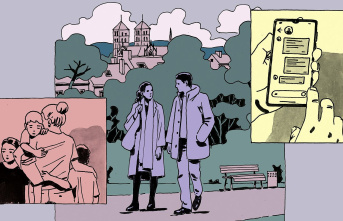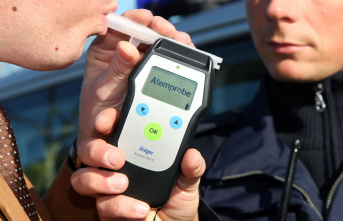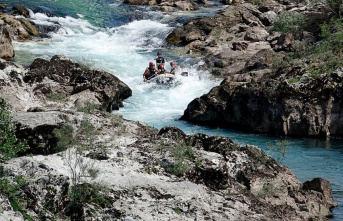COLOMBO (Sri Lanka) -- Chamila Nilanthi has had enough of waiting. The mother of two, 47 years old, spent three days waiting in line to buy kerosene from Gampaha in Sri Lanka, northeast of Colombo. She had spent two weeks waiting in line for cooking gas, but she returned home empty-handed.
She said, "I am completely exhausted and fed up." "I don’t know how much longer we can do this."
Only a few years ago, Sri Lanka's economy had grown strong enough to provide financial security and jobs for many. As its leaders try desperately to get a bailout from the International Monetary Fund, it's in crisis and dependent on India and other countries for assistance.
Protests and political turmoil have erupted since the collapse. On Saturday, demonstrators stormed the homes of President Gotabaya Rajapaksa as well as Prime Minister Ranil Wickremesinghe. Later, the speaker of Parliament stated that Rajapaksa had resigned Wednesday. Wickremesinghe also said that he would resign once a new government was formed.
This South Asian island nation with 22 million people is experiencing a worse financial crisis than any other. It has seen people struggle to purchase food, fuel, and other necessities. The result is unrest and violence.
Scott Morris, a senior fellow with the Center for Global Development in Washington, stated that "it really is veering rapidly into a humanitarian crise."
These disasters are more common in countries that are poorer, such as sub-Saharan Africa and war-torn Afghanistan. They are less common in middle-income countries like Sri Lanka but they are not uncommon: 6 million Venezuelans fled their oil-rich country, fleeing a seemingly endless political crisis that had decimated the economy.
Indonesia was once hailed as the "Asian Tiger" economy. However, it suffered from Depression-level poverty in the late 1990s. This led to riots, political unrest, and the removal of a strongman who ruled for over three decades. It is now a democracy and a member of Group of 20 largest industrial economies.
The crisis in Sri Lanka is a result of economic mismanagement and fallout from the pandemic. This, along with the 2019 terrorist attacks, has decimated its tourism industry. The flow of remittances to Sri Lanka from Sri Lankans abroad was also affected by the coronavirus crises.
In 2019, the government took on huge debts and cut taxes, depleting the Treasury just as COVID-19 struck. The rupee, Sri Lanka's beleaguered currency, plunged to the bottom of its foreign exchange reserves, making it unable pay imports or to defend itself.
The price is being paid by ordinary Sri Lankans, especially the poor. They have to wait days for fuel and cooking gas in lines that can stretch more than two kilometers (1.2 miles). Sometimes they return home empty handed, just like Chamila Nilanthi.
So far, at least 16 people have been killed while waiting for gasoline. One of these was a 63 year-old man who was found in his car on the outskirts Colombo. Some people have stopped driving because they couldn't get fuel and instead rely on public transport or bicycles to get around.
To conserve fuel and give civil servants time to grow their own fruits and vegetables, the government has shut down some urban schools and universities.
According to government data, food price inflation stands at 57%. 70% of Sri Lankan households polled by UNICEF last month said they have cut back on their food consumption. Many families depend on government rice handouts, donations from charities, and generosity of individuals.
Many Sri Lankans cannot find cooking gas so they turn to kerosene stoves and open fires to cook.
If the power goes out, wealthy families can use electric ovens to cook. Most Sri Lankans cannot afford these stoves and higher electric bills.
Protests by angry Sri Lankans over fuel shortages led to blocked roads, protests and confrontations with police. When people try to get ahead in fuel lines, fights break out. Unruly crowds have been attacked by police.
A soldier attacked a police officer at fuel station one night in June in a dispute about gasoline distribution. The officer was taken to the hospital. Both the military and police are investigating separately.
The country's middle class, which accounts for 15% to 20% in the country's urban population, is suffering a devastating blow. They enjoyed greater living standards and financial security until it all fell apart.
This is not an unusual reversal. It looks a lot like what happened in Indonesia in the late 1990s.
The U.S. Agency for International Development, which manages aid projects for poor countries, was closing down its office in Jakarta, Indonesia's capital. It didn't seem that the country needed the assistance. Jackie Pomeroy, an economist, said that the country had been one of the Asian Tigers and was now off the aid list. She worked for USAID in Indonesia before joining the World Bank in Jakarta.
The financial crisis that swept through East Asia was triggered by the sudden devaluation of Thailand's currency in July 1997 to fight speculators. Indonesia was particularly hard hit by corruption and weak banks. The currency of Indonesia plummeted against US dollars, forcing companies in Indonesia to borrow more dollars.
Businesses were closed. The rate of unemployment rose. People fleeing cities moved to the countryside, where they could grow their food. In 1998, Indonesia's economy contracted by more than 13%. This was a record-breaking performance that is comparable to the Depression.
In desperate times, anger and protests erupted against Suharto's government. He had ruled Indonesia with a firm grip since 1968. Pomeroy stated that "it very quickly rolled into scenes political unrest." It became a matter of political transition and Suharto. The dictator was expelled in May 1998, ending autocratic rule.
They live in democracy but many Sri Lankans are blaming the Rajapaksa clan for the tragedy. Ranjana Padmasiri who works as a clerk in a private company said, "It's their fault. But we have to bear their mistakes."
Two prominent Rajapaksas, former Prime Minister Mahinda Rajapaksa (who was also finance minister) and Basil Rajapaksa (who was also the prime minister), have resigned. For more than two years, protesters demanding President Rajapaksa's resignation have occupied his office in Colombo.
The largest day of protests in the country saw the president's resignation.
Padmasiri stated that merely resigning is not enough. He said, "They cannot get away with it easily." "They must be held accountable for this crisis."
------
Wiseman reported out of Washington.












